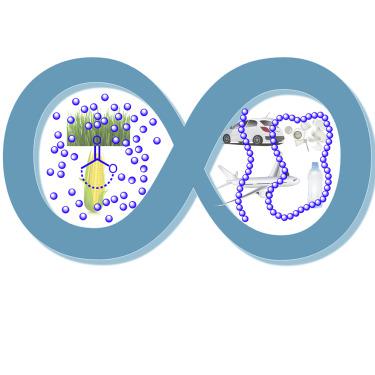Chem ( IF 19.1 ) Pub Date : 2018-11-15 , DOI: 10.1016/j.chempr.2018.10.011 Xiaoyan Tang , Eugene Y.-X. Chen

|
Plastics, used in countless consumer products that our daily lives depend on, have become indispensable materials essential for modern life and the global economy. At the same time, currently unsustainable practices in the production and disposal of plastics continue to deplete our finite natural resources and create severe worldwide environmental consequences. In the search for feasible solutions to these issues, significant recent advances have been made in developing chemically recyclable plastics, which allow for recovery of the building-block chemicals via depolymerization, for repolymerization to virgin-quality plastics, or for creative repurposing into value-added materials. Among such recyclable plastics, polyesters derived from renewable cyclic esters possess real potential to meet these challenges. Hence, this review highlights the plastics derived from common four-, five-, six-, seven-, and eight-membered cyclic esters by covering synthetic strategies, material properties, and, particularly, chemical recyclability. Such studies have culminated a recent discovery of infinitely recyclable plastics with properties of common plastics.
中文翻译:

迈向源自可再生循环酯的无限可回收塑料
用于我们日常生活所依赖的无数消费产品中的塑料已经成为现代生活和全球经济必不可少的材料。同时,目前在塑料生产和处置中不可持续的做法继续耗尽我们有限的自然资源,并给世界范围内的环境造成严重后果。在寻求这些问题的可行解决方案时,最近在开发可化学回收利用的塑料方面取得了重大进展,这些可回收塑料可通过解聚回收建筑材料,将其再聚合为纯净质量的塑料,或创造性地重新利用其价值。添加材料。在这种可回收塑料中,衍生自可再生环状酯的聚酯具有应对这些挑战的真正潜力。因此,这篇综述通过涵盖合成策略,材料特性,尤其是化学可回收性,重点介绍了衍生自常见的四元,五元,六元,七元和八元环状酯的塑料。这些研究最终导致了具有普通塑料特性的无限回收塑料的最新发现。











































 京公网安备 11010802027423号
京公网安备 11010802027423号